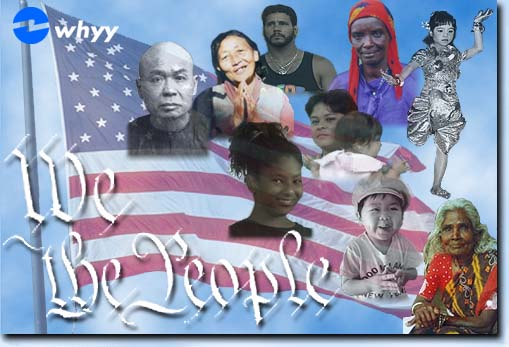|
|
LITR 5731 Seminar in Multicultural Literature: American Immigrant: model assignments 2010
|
|
Denielle Alexander
What are
the negative factors that Mexican immigrant children endure while learning
English as a second language?
I am a native from Texas, where majority of the demographics consist of Hispanic. I was raised with belief that being bilingual is promising for your future. I composed my first research post regarding the advantages of Mexican immigrant children learning a dual language. I have recently learned that English as a second language can improve these children’s social settings for them and their families. They are able to help their immediate family, who may not be able to speak English by acting as language brokers. Also, while the children learns both English and Spanish they are able to learn social and cultural factors which assists in them and their families in assimilating to the dominant culture with more ease. Now I want to scratch the surface a bit deeper. Preliminary to my research I wanted to correlate my findings to Objective 6: to observe and analyze the effects of immigration and assimilation on cultural units or identities. In order for me to understand the effects of bilingual Mexican immigrant children learning English, I want to examine the following: What are the negative factors that Mexican immigrant children endure while learning English as a second language?
Language deficiencies can be an unappealing stereotype placed on immigrant children. It affects their identity, because the negative connotation of the word deficiency can create a degrading view of how these children envisioned themselves and their contributions to society. In reading an article Bilingualism and the Academic Performance of Mexican-American Children: The Evolving Debate. ERIC Digest, he noted “There can be no doubt that a child exposed and reared deliberately in a bilingual environment is handicapped in his language” (pg.2). By these immigrant children having this negative connotation in regards to their identity, they will face these challenges throughout their academic careers, and influence the impacts they have on their families, which will influence the attitudes that immigrating may possibly birth language deficiencies. In my previous research, I notated that bilingual immigrant children views of the world around them closely reflects how their parents “or immediate family” views the dominant culture and American society. Having the label of language deficiencies can discourage their success and assimilation into American culture. It can also hinder probable cause of them wanting to engage with the dominant culture and share the benefits of having a dual language into the American society.
The most common issue of bilingual immigrant children learning English as second language is, they may lose connections with their ethnic heritage, family and most importantly native language. Losing your sense of self identity and who you are can limit your success and abilities into the dominant culture and American society itself. America history is based from individualistic attitudes rather than collectivism “which most Mexican immigrant tends to have this view”. According to Lisa Dorner’s article English and Spanish ‘para in futuro’-or just English? Immigrant family perspectives on two-way immersion she shares that, “…children fearing that they would not be able to speak their home language any more if a new policy was passed, or recognizing the power of language to assert a particular identity.” (pg.307) Since Mexican immigrant children are submerged into English classrooms majority of their day and surrounded by English environments and influences, the chance of losing their native language could negatively affect their self esteem and thoughts of who they are and where they belong in the dominant culture. While learning the second language, their social society will begin to consist of predominately English while their Spanish roots, cultural knowledge and language will possibly fade. Not knowing who you are, or having a grasp of your ethnic identity, can be damaging to your self esteem and make the transition to assimilating unappealing and frustrating.
For these Mexican immigrant children, being bilingual is a guide toward a better life. However, it also has unwanted consequences. When they submerge themselves in the dominant culture, it is only natural that they may lose part of ethnic identity. The identity of being Mexican and their native Spanish tongue is in danger. Negative stereotypes are detrimental to these children “such as the language deficiency”, can possibly cripple the immigrant child’s self esteem and cause them question their existence and reasons for immigrating to America. Losing parts of your first language can possibly distance you away from your family and heritage. Assimilating to the dominant culture, can have some benefits and advantages, but at what cost? I feel that every immigrant has to evaluate the costs and benefits of assimilating, and examined at what costs will the decision of merging to American culture will benefit them for a promising future, or tear them apart mentally.
Works Cited
Dorner,
Lisa. "English and Spanish 'para Un Futuro'-or Just English."
International
Journal of Bilingual Education and Bilingualism 13.3 (2010): 303-23.
MLA
International Bibliography. Web. 05 June 2010.
Garcia,
Eugene. "Bilingualism and the Academic Performance of Mexican-American Children:
The Evolving Debate. ERIC Digest." ERIC Clearinghouse on Rural Education and
Small Schools Charleston WV (2033): 1-5. Print.
"Language Development in Bilingual Children - KidsGrowth."
Welcome to Kids
Growth , for Pediatric Professionals, Parents, and Teens. KG Investments,
LLC, 2010. Web. 05 July 2010.
<http://www.kidsgrowth.com/resources/articledetail.cfm?id=1229>.
Worthy, Jo. "Como Si Le Falta Un Brazo: LAtino Immigrant Parents and the Costs of Not Knowing English." Journal of Latinos and Education 5.2 (2006): 139-54. MLA International Bibliography. Web. 05 June 2010.


